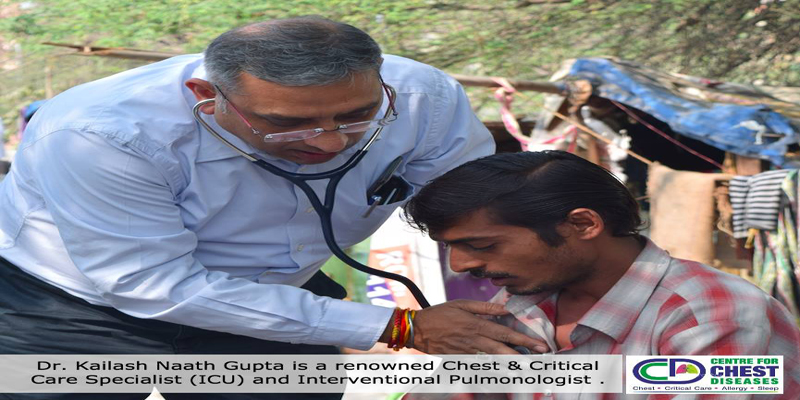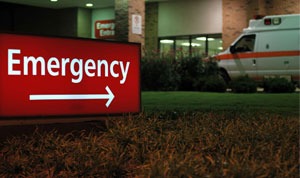Fight against TB should move beyond TB

India has retains the dubious distinction of being the TB capital of the world since 2008. According to the latest data by the Global Tuberculosis Report 2017, 27 Lakh new cases of TB were reported 2016. At the same time, an estimated 4.3 Lakh people died of TB; this accounts for 26 percent of the Global Death Toll of TB. The battle against TB is one of the most expensive one. The cost of treating one TB patient can range from Rs 2 to 5 Lakhs and can take years to cure. This is huge for a country with per capita income of Rs 42000 annually. To make matters worse, TB disproportionately affects the people from lower income communities. TB is one of the most infectious diseases; it is airborne and can spread easily during events of sneezing, coughing or even talking. One person can infect a minimum of 4 people during the course of disease. The over-crowded areas such as urban slums therefore, throw up high-figures of TB infections. Apart from over-crowding, smoking habits, HIV-positive status, low nutrition levels and high air pollution make populations susceptible to TB. Many of these challenges are faced by well-off communities as well making rich and poor equally at risk of TB.
The treatment of TB is a long-drawn process. The first-line of treatment of TB involves taking a combination drugs daily over 6 months. This kind of a treatment regime is difficult to adhere to, especially when the symptoms disappear within the first 1 month of the treatment. As a result only 30 % of the patients complete the treatment. When treatment is not completed, there are high chances of reinfection with severe forms such as multi-drug resistant TB (MDR-TB), extremely-drug resistant TB (XDR-TB) and the deadliest totally-drug resistant TB (TDR-TB). The treatment of the severe forms of TB can take years. TB has emerged as one of the deadliest communicable disease because it can quickly develop drug resistance. To add to the complexity of the issue, TB can infect any part of the body such lungs, spine, gastro-intestinal tract, eyes, genitals etc. But because the disease is usually associated with lungs, the other forms of TB are often diagnosed at a later stage leading to delayed or wrong treatment. This leads to drug resistance of the infection.
The effects of TB can be felt even after a patient is fully cured. TB patients are high vulnerable to post-treatment disease such as scar carcinoma, obstructive airway disease and lung fibrosis. This is because TB, especially TB of lungs, can weaken the lungs forever.
The successful treatment of TB depends on early diagnosis, strict adherence to a long-drawn treatment process, sound nutritional support and post treatment follow-up. Many a times, the patients miss out on one or the other of this. Government of India has been spending millions in providing free treatment the treatment of TB since decades. A sum of $525 million was allocated in 2017, of which 74% was funded from domestic sources. Apart from this, in 2018 Union Budget, Rs 600 crore was provided as nutritional support for the TB patients. This comes to Rs 500 per month per person. However, the success of these steps will remain a challenge because only 15 to 20% of the TB patients visit the government facilities providing the DOTS (Directly Observed Treatment, Short Course) Treatment. Majority of the patients find it convenient to visit private hospitals and clinics because of reasons like familiarity with the doctors, trust in the facility and less or no formalities in such facilities. But many of these private facilities fail to report the cases to the Government, in-spite of a mandate to do so. This under-reporting has resulted in deprivation of access to government support provided to these patients, majority of whom come from poor financial conditions who find the expensive treatment and nutritional costs overwhelming.
The new system of providing financial and nutritional support to TB patients lies entirely on Direct Benefit Transfer linked to Aadhaar. But for the system to work, the first step is to ensure that the wide range of private clinics providing treatment report the TB cases regularly. This will require smooth communication between the Government and Private healthcare providers. The private healthcare facilities should be familiarized with the new system by adequate capacity building initiative. At the same time, adequate awareness campaign should be raised to disseminate the information of these benefits among the patients in order to ensure accountability of the system.
Awareness generation activities should move beyond information dissemination of treatment benefits. The activities should focus on prevention and early diagnosis of all sorts of TB. Post-treatment follow-up of TB patient is minimal and requires due attention. But given the long list that follows the infection of TB, prevention of TB is the best method of dealing with it.
Preventive measure include creating an environment free of pollution, making nutritious food easily accessible to all sections of society, education focusing on improving nutrition of all and improving infrastructure such as housing. It also encompasses better information sharing between Government and Private healthcare facilities so that spread of the disease can be contained. It needs mechanism to support all patients to adhere to the treatment regime and follow up after treatment, to prevent re-infection or post treatment disease. The fight against TB is therefore, not just about TB. It is about controlling air pollution, improving education, providing access to nutrition, improving urban infrastructure and improvements in the way the government and private healthcare facilities work with each other. Thus, the fight against TB goes beyond TB treatment and encompasses overall development of communities.
TB does not discriminate between rich and poor religion caste colour or creed it effect all equally.



